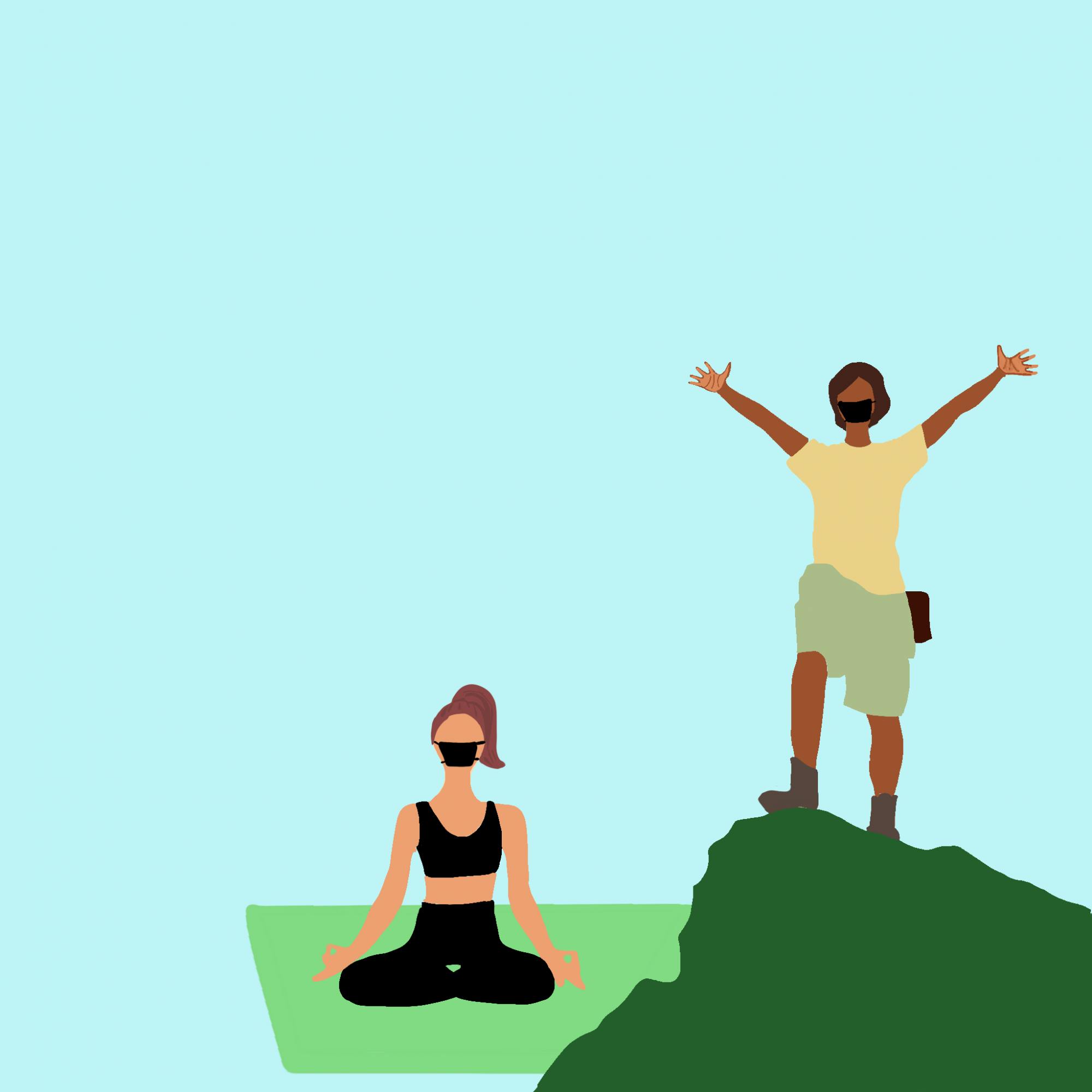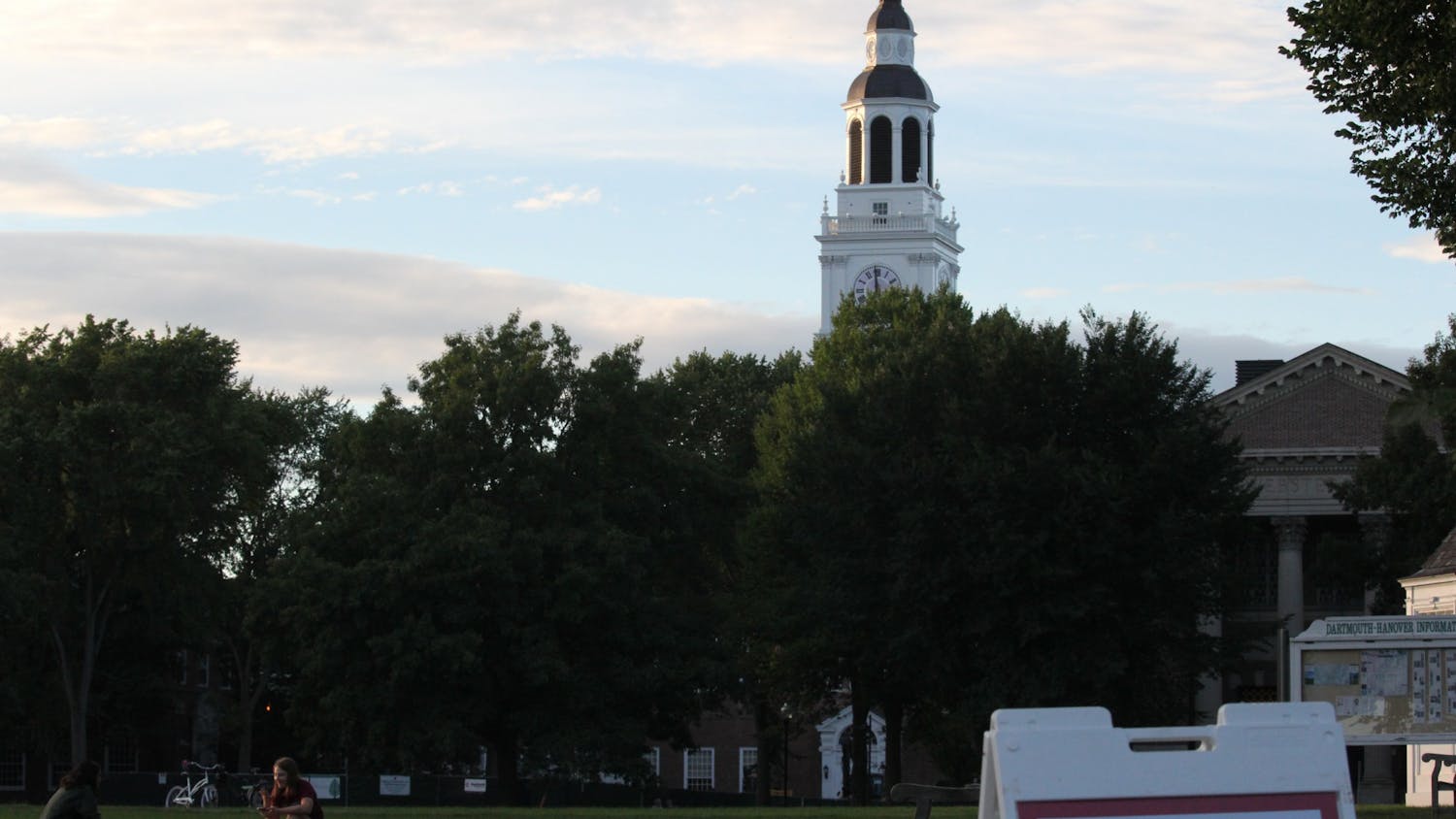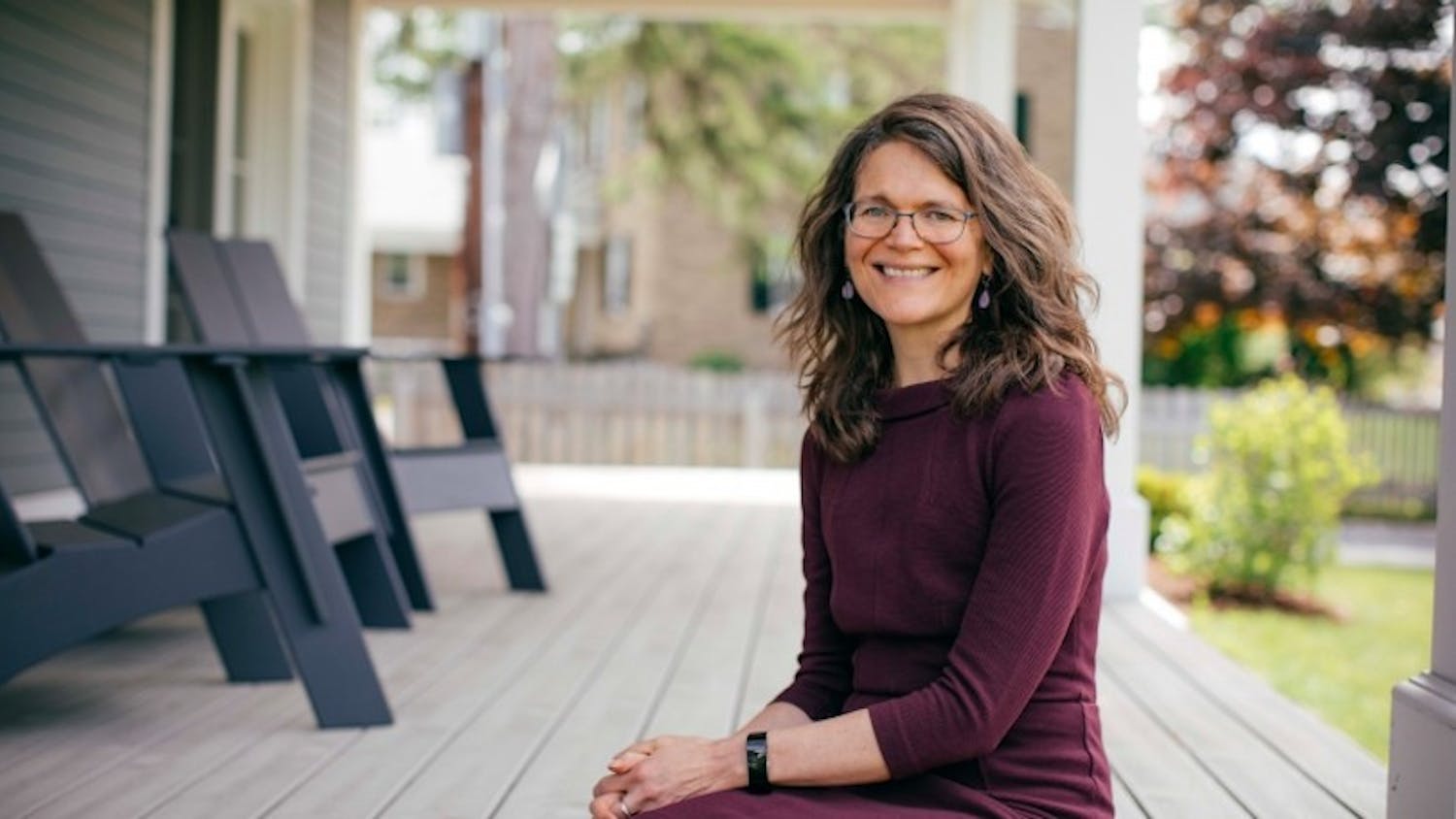This article is featured in the 2020 Freshman special issue.
Many Dartmouth traditions have been put on pause to prevent the spread of COVID-19, including those that used to define the social integration of freshmen. After all, having a Q-tip wedged up your nose and isolating in your room is a stark departure from participating in First-Year Trips or running laps around the Homecoming bonfire.
A lack of tradition, though, does not imply a lack of community. Indeed, the Dartmouth community has reacted to the pandemic and prepared to operate digitally, providing varying mental health resources — from formal resources like the Counseling Center to apps like Unmasked and organizations like the Dartmouth Mental Health Student Union — to help maintain students’ well-being.
One such formal resource is the Student Wellness Center, which “roots all of its practices in evidenced-based practices,” according to SWC director Caitlin Barthelmes.
Barthelmes noted that the SWC has used the pandemic as an opportunity to “round out” its services by adding more online options. This initiative has been met with much success — in particular, their online offerings for Yoga and Mindfulness have “exploded,” according to Barthelmes. The SWC’s offerings range from five-minute study break yoga sessions to longer mindfulness sessions centered around artwork from the Hood Museum of Art.
One of the SWC’s most recent additions is the newly developed COVID-19 Preventive Conversations program, which relies on motivational interviewing — a student-centered, non-judgmental technique used widely in health care that can guide a student through a reflective process on their behaviors, according to Barthelmes.
Barthelmes noted that the program’s goal is to “[help] students reflect on COVID-specific preventative behaviors and how to live those out in a way that’s in accordance with their values as well as in accordance with the best practices.”
The SWC works in tandem with the Dick’s House Counseling Center, often engaging in “warm handoffs” in which students are referred by one of the services to the other if more specialized help or treatment would be beneficial, Barthelmes noted.
Social distancing and remote learning have forced the Counseling Center to adjust its practices in providing care for the Dartmouth community. To abide by public health precautions, the Counseling Center canceled in-person counseling and pivoted to provide remote teletherapy during the spring term.
The Counseling Center offers teletherapy appointments on two platforms: HIPAA-approved Zoom and HIPAA-approved phone calls, according to Dick’s House director and psychologist Heather Earle. While she believes most students favor Zoom, Earle said she is glad that the option to engage via phone offered more flexibility to the program in the spring and summer.
“We wanted to offer both because we wanted to be mindful that not all students have a private place to talk, and so [phones] might allow them a different way for privacy,” Earle said.
Additionally, Earle noted that some students opted for phone calls simply because of Zoom fatigue — they were “getting Zoomed out.” Likewise, at the SWC, Barthelmes said she also found that students are feeling “oversaturated with the screen.” Keeping this in mind, Earle said the Counseling Center expects to accommodate their usual 25 percent of the total undergraduate and graduate student population with teletherapy services this fall.
Another adaptation that the Counseling Center has developed are its non-therapy wellness discussion groups, which are “non-intimidating” venues for students to talk about mental health problems that they face during the pandemic, according to Earle. She added that, because of the non-therapeutic nature of these discussion groups, students can access them regardless of their locations.
“We are really trying to stress that they're not therapy,” Earle said. “… Because I think that not everybody needs therapy. But I do think most people need some decreasing anxiety skills, how to help a friend with anxiety or have information around suicide prevention.”
The Counseling Center plans to offer a wide range of discussion groups. In the spring and summer terms, they offered a discussion group for students living in the residential halls, focusing on their specific experiences with the pandemic. They plan to offer a similar program in the fall. Earle said one of their goals with this program is “helping create community for first-year students.”
Brittany Cleary ’21, a two-time freshman undergraduate advisor, attended the Counseling Center’s intuitive eating workshop led by nutritionist Shira Evans in the spring. She said that “those kinds of workshops are really helpful” in part because of the valuable information offered and also because of the more-relaxed atmosphere provided by such non-therapeutic mental health discussions.
“Honestly, it’s hard to predict how your mind is going to react to this new environment,” Cleary said. “Your mental health might get much better, or it might get worse. And I think this is a really normal experience that most people go through.”
Helen Cao ’22, for instance, said she battled with her mental health during her freshman year and decided to pursue care at the Counseling Center at Dick’s House her freshman winter and spring, booking follow-up appointments her sophomore winter.
“I was really struggling my freshman year — I moved around a lot before college, and I’ve been able to make friends pretty easily everywhere I went,” Cao said. “So when I entered Dartmouth, I was really excited to have a great college experience and make some of the best friends I’ll have in my life. Unfortunately, that didn’t happen, and I found myself clinging to groups of people that weren’t too good for me and my self-confidence.”
Cao’s experience freshman year resembles many other students’ experiences: acclimating to a new location, learning the ropes of a new cultural dynamic and finding a positive group of friends can be challenging.
Sanat Mohapatra ’20, founder of the anonymous mental health-focused app Unmasked, shared that as he struggled to find his path during his freshman year, the now-defunct anonymous app Yik Yak influenced his journey in an unexpected way.
“I noticed that with all the humorous content [on Yik Yak] there was also a lot of mental health content,” Mohapatra said. “I tried to help a lot of the students who were asking for support … but I also realized two things. One, that a lot of students weren’t using traditional mental health resources at school, and two, that they were more comfortable sharing how they’re feeling on an anonymous platform.”
After Yik Yak’s departure from Dartmouth in the spring of 2017, Mohapatra was inspired to create an anonymous platform that could capitalize on the mental health benefits that the anonymous platform Yik Yak had offered.
Mohapatra noted that he sees his platform not as a substitute for College resources, but instead as a “sounding board” for students looking to take steps to overcome their problems.
“I think the biggest issue is not that those resources are bad,” Mohapatra said. “I think the problem is people are scared that by going to those resources, it means that they’re confirming that they have some kind of serious issue.”
Mohapatra said he is most excited that his platform has become a “general place to connect with other students” and that it provides freshmen with access to the advice and experiences of upperclassmen, adding that the anonymity of the platform makes it easier for students to engage with each other without judgement.
In addition to Unmasked, another student resource from which freshmen can seek help is the Dartmouth Mental Health Student Union. Led by president and founder Amanda Chen ’21, DMHSU offers students “Late Night Solace,” also called the Peer Support Program, to connect them to DMHSU members. Through the program, students can drop in to speak with one another and members of the DMHSU, who have undergone more than 40 hours of training in dealing with varying mental health concerns.
“A peer offers a unique perspective that more official centers might not be able to offer,” Chen said. “We provide a level of comfort because we know what it’s like to go through Dartmouth. You don’t have to explain what it’s like to go through certain Dartmouth stressors with us like the quarter system, the social scene or just feeling like you don’t fit in.”
Chen added that she has loved working on cultivating new programs this summer — such as forming a pilot safety officer program for club sports teams and working on adding a mental health training module to the required freshman orientation.
The DMSHU’s philosophy rests on the premise that mental health is circumstantial, according to Chen.
“Mental health looks different for everybody: It looks different for what communities you’re in at Dartmouth, the communities you came from at home, maybe the activities you’re involved in as well,” Chen said.
As freshmen virtually navigate Dartmouth this fall — sifting through different groups on campus, acclimating to newfound independence along with immediate isolation and balancing their own mental health needs — they should remember that there is a robust support system of informal and formal resources available to help. Hopefully, these structures will cultivate digital togetherness and help ’24s find their home in the nooks and crannies of the Dartmouth community.





